- Chelsea Etheridge
Choose the health content that’s right for you, and get it delivered right in your inbox.

Did you know one out of eight men will be diagnosed with prostate cancer in their lifetime? The American Cancer Society (ACS) informs us that prostate cancer is the most common cancer aside from skin cancer for men in the United States. It is also the second most common cause of cancer death among men, with the first being lung cancer. Promoting cancer prevention and health screening education is vital, as men’s health issues can often be overlooked.
For men who are questioning if they should get screened for prostate cancer or other general screenings, the best place to start is to consult with your primary care provider. For prostate cancer, the ACS suggests speaking with your doctor about screening between the ages of 40 to 50 depending on risk factors for prostate cancer, including family history of prostate cancer at an early age (less than 65 years old) and if you are of African American race.
The majority of men with localized, early-stage prostate cancer are asymptomatic. When detected early, prostate cancer can be safely monitored or treated depending on cancer risk. However, if a patient waits until symptoms develop, he is more likely to have advanced disease, which could limit treatment options.
Some of the symptoms of prostate cancer may include the following:
- Back pain
- Blood in urine
- Changes in urine flow/frequency
- Pain while urinating
- Pelvic pain
For a screening, you can expect to receive a prostate-specific antigen (PSA) blood test that analyzes protein levels made by cells in the prostate gland and a digital rectal exam (DRE) which allows your provider to check your prostate for lumps or anything out of the ordinary. Additional screening options may include a prostate MRI and other advanced blood/urine tests. After taking some time to discuss with your loved ones and deciding you are ready for your prostate screening, coordinate the appointment with your doctor.
“Prostate cancer is highly treatable when detected early,” said Ryan J. Mullins, MD. “That’s why screening and early detection are so important.”
Dr. Mullins, a board-certified urologist, recently joined the stellar, expertise-filled team at AdventHealth Medical Group Urology at Calhoun, which includes fellowship-trained urologic oncologist Hak Lee, MD, M. Lynn Herring, MSN, FNP-C, and Joanne Hooks, FNP-BC. Originally from Calhoun, Georgia, Dr. Mullins is passionate about advocating for patients’ health and wellness.
“The need to be screened doesn’t end with prostate cancer,” said Dr. Mullins. “For a healthy, thriving life, all men will need to consider a multitude of health screenings to stay up to date on their overall well-being.”
Other important screenings include:
- Cholesterol screening
- Diabetes screening
- Blood pressure screening
- Depression screening
- Colorectal cancer screening
- Testicular cancer screening
- Cardiovascular disease
- HIV and STD screening
- Hormone screening in symptomatic males
The list goes on and on, but it is paramount to be aware of your current level of health and fitness. Each examination ensures a level of confidence when thinking about the future, and since men have a one-in-two chance of being diagnosed with cancer, it is never too late to start being precautious.
“Health screenings are offered to measure a person’s vitality, and they are a valuable tool to help become more proactive in your well-being,” said Dr. Mullins.
Dr. Mullins and countless other AdventHealth health care providers are at your disposal to help you live your best life, and they can offer their expertise if you seek it.
The time to be better prepared and to grow your health care knowledge is now and be sure to take it step by step. Collectively, more and more men can implement healthier habits by eating better and being more active but also by motivating other men around them. Men’s health can sometimes be overlooked. To bridge the gap, men must unite in leading healthier lives — not only for themselves, but also for their families and loved ones.
Recent News

AdventHealth named among U.S. News & World Report’s fifth annual 2026 Best Hospitals for Maternity Care
This marks the third year in a row AdventHealth Shawnee Mission has appeared on the U.S. News & World Report’s list of Best Hospitals for Maternity Care.

AdventHealth Waterman strengthens access to expert specialty care with expansion of Mount Dora medical plaza
Second floor buildout adds orthopedics, sports medicine, women’s health and heart care for Lake County
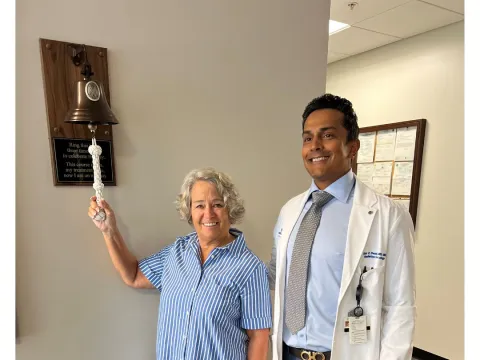
Expanding hope through innovation: AdventHealth advances cancer care across East Florida
Cancer touches nearly every family, and in Flagler, Lake and Volusia counties, the demand for timely, advanced care keeps rising. AdventHealth’s East Florida Division, which includes seven hospitals...
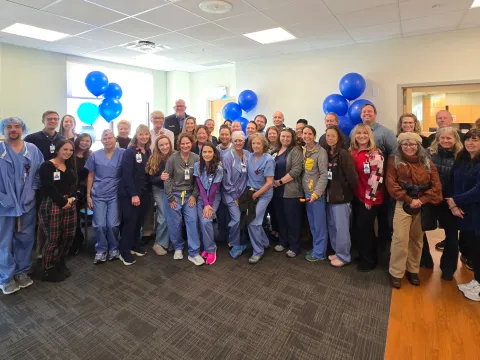
A new chapter begins: AdventHealth Avista opens its on-campus surgery center
This milestone marks a meaningful new chapter for a team whose history stretches back more than two decades.

AdventHealth Porter Performs Rare, Complex Robotic Kidney Cancer Surgery
AdventHealth Porter has reached an extraordinary milestone in surgical innovation, completing what is believed to be the first robotic left radical nephrectomy with inferior vena cava (IVC)...

Amanda Robinson, DO, joins AdventHealth Medical Group Family Medicine, Internal Medicine & Pediatrics at Curtis Parkway
AdventHealth is pleased to announce that Amanda Robinson, DO, has joined AdventHealth Medical Group Family Medicine, Internal Medicine & Pediatrics at Curtis Parkway.
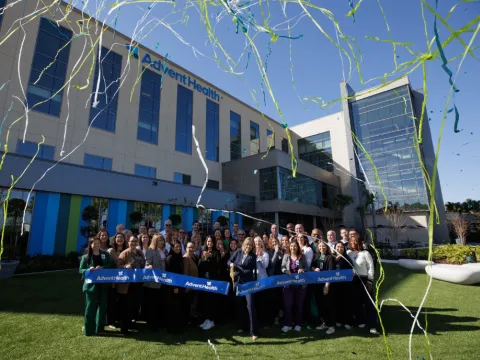
New hospital brings world-class, whole-person care to Minneola
AdventHealth Minneola will bring nationally recognized care close to home in South Lake County.

New surgeon expands local access to advanced colorectal care in Volusia County
Dr. Mark Heimberger joins AdventHealth as part of its continued investment in bringing minimally invasive and robotic colorectal treatment options to the region’s growing community.
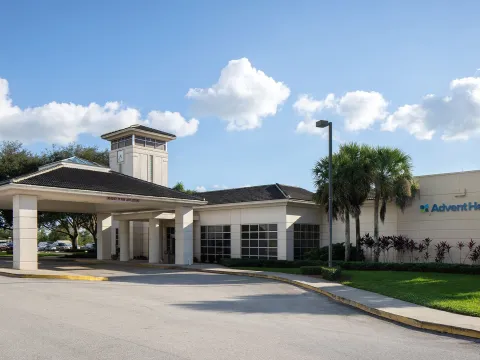
AdventHealth Lake Placid launches Low Dose Lung Screening CT program to help detect cancer early
AdventHealth Lake Placid has launched a new Low Dose Lung Screening CT program, bringing this life-saving service closer to home for people who live in and around Lake Placid.

Delivering on the mission: AdventHealth Supply Chain and Business Services' impact is part of every patient story
Every day, more than 1,500 Supply Chain and Business Services team members work behind the scenes with more than 3,000 suppliers to support how AdventHealth patients receive care.
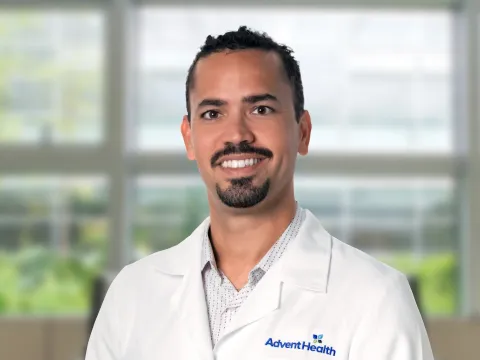
Albit Paoli, MD joins AdventHealth Medical Group Orthopedics & Sports Medicine
AdventHealth is pleased to announce that Albit Paoli, MD, has joined AdventHealth Medical Group Orthopedics & Sports Medicine at Calhoun and AdventHealth Medical Group Orthopedics & Sports Medicine at...
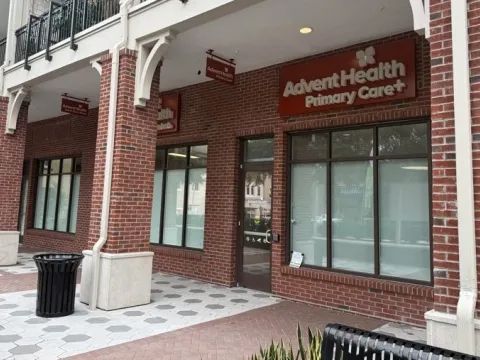
AdventHealth expands access to primary care in the heart of DeLand
AdventHealth has opened a new Primary Care+ location in the heart of downtown DeLand, giving residents a simple way to get everyday care close to where life happens. The primary care practice offers...
